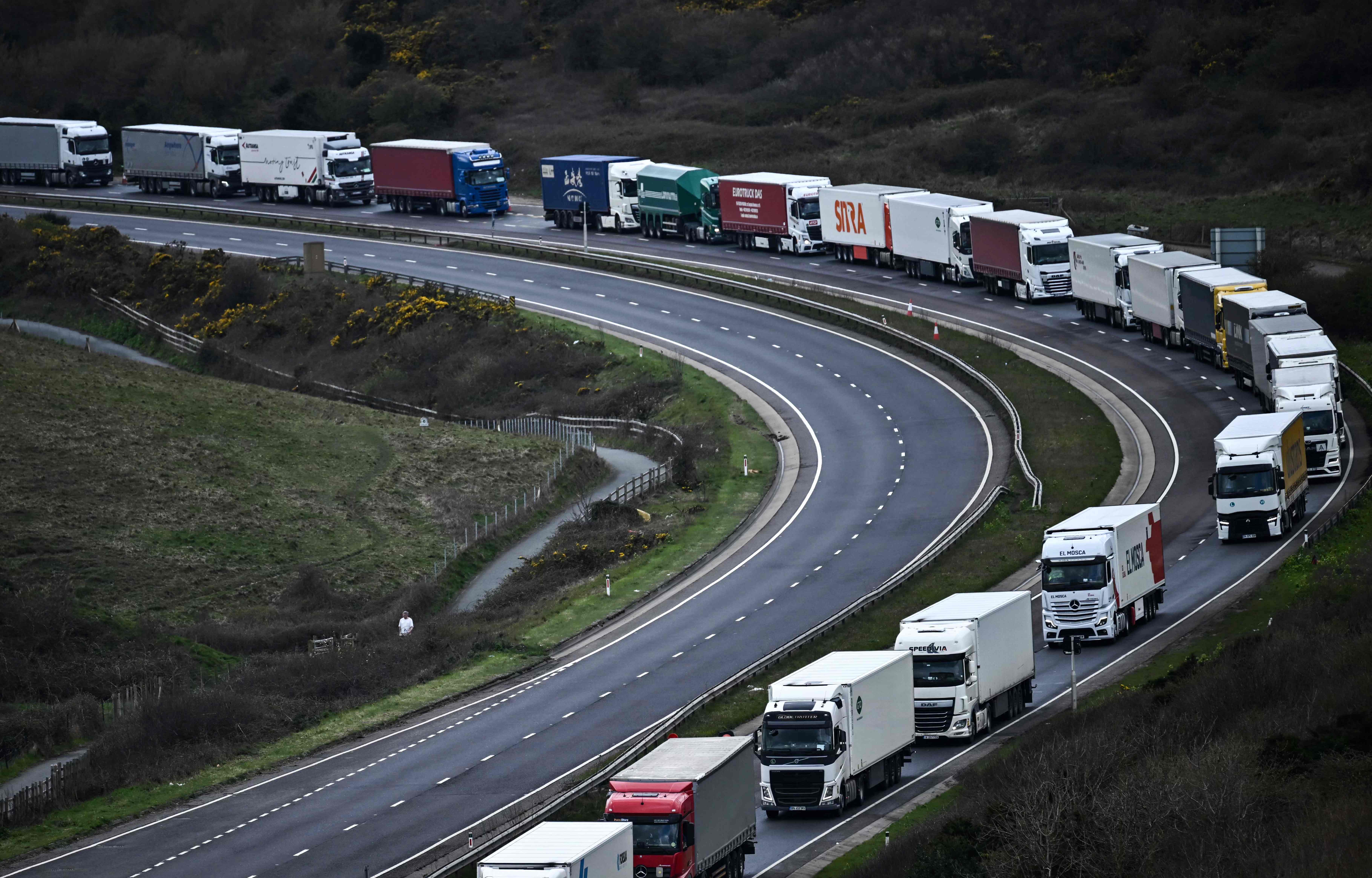HGVs carbon footprint equivalent to all UK air travel, buses and shipping combined, new report claims
Exclusive: Electrifying the UK’s HGV fleet would be the same as removing 13 million cars from Britain’s roads, report says

A new report released on the eve of Cop28 has called for urgent action to electrify polluting HGVs so that Britain is able to reach its net zero targets for transport.
Despite accounting for only 1 per cent of all vehicles on Britain’s roads, HGVs are responsible for 20 per cent of the UK’s transport emissions – roughly equivalent to all UK air travel, buses and shipping combined.
Electrifying the UK’s HGV fleet would be the same as removing 13 million cars from Britain’s roads, the report suggests.
The Green Finance Institute (GFI), who commissioned the research, said a lack of charging infrastructure for electric vehicles and high costs were holding the sector back from decarbonising the UK’s HGV fleet.
The report added that half of all HGVs are owned by small businesses, who could face additional challenges in accessing finance to make their vehicles green.
The GFI has called for the government, transport industry and private investors to work together to unlock a £100bn in investment to decarbonise the sector.
Lauren Pamma, programme director at the GFI, said: “Heavy Goods Vehicles make up a significant proportion of the UK’s total carbon emissions, despite accounting for only 1 per cent of vehicles on UK roads.
“There is a £100bn investment opportunity that we can unlock through innovative finance products, providing a massive opportunity to decarbonise the HGV sector before the government’s target of phasing out diesel trucks by 2040.
“Our report today sets out some of the financing mechanisms that will help us roll out electric charging points and get more electric lorries on our roads to decarbonise the HGV sector.
“These include utilisation linked finance and shared charging infrastructure agreements that will particularly help SMEs, which own half the UK’s HGV fleet but struggle to secure green financing and need additional support.”
Chris Ashley, head of policy in environment and vehicles at the Road Haulage Association, said: “This report from the Green Finance Institute is a timely and welcome contribution to address how the UK finances the decarbonisation of its HGV fleet.
“With its clear illustration of the complexity and costs involved, ensuring the switch away from diesel is seamless whilst supporting our vital small businesses – the lifeblood of logistics – will be essential.
“The GFI has provided a framework that allows industry to navigate and debate the investment conditions needed to deliver a sustainable net zero.”
The two-week Cop28 summit hosted by the UAE kicks off on Thursday and nation states will be assessing how much progress has been made since the Paris Agreement eight years ago.
The meeting has already been mired in controversy after reporting from the BBC and the Investigative Centre for Climate Reporting revealed that the UAE planned to use its role as Cop28 host to strike oil and gas deals.
Subscribe to Independent Premium to bookmark this article
Want to bookmark your favourite articles and stories to read or reference later? Start your Independent Premium subscription today.

Join our commenting forum
Join thought-provoking conversations, follow other Independent readers and see their replies